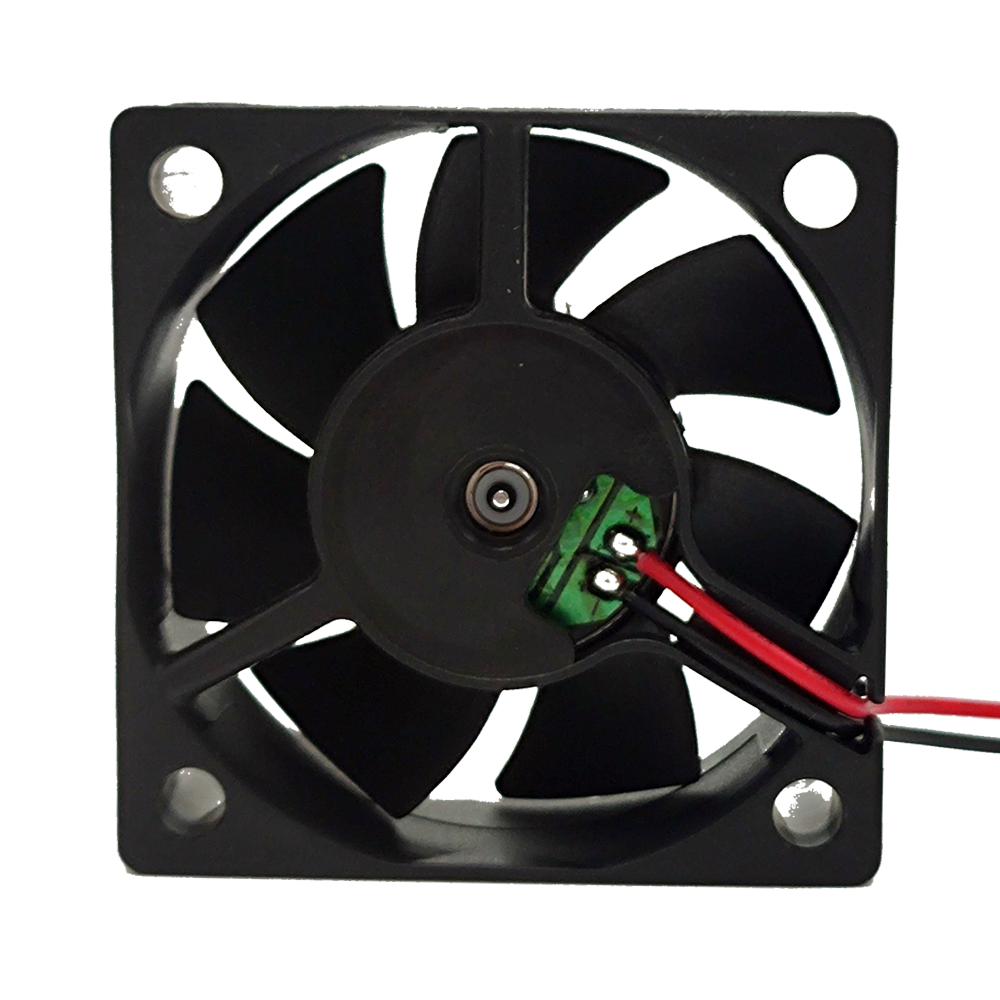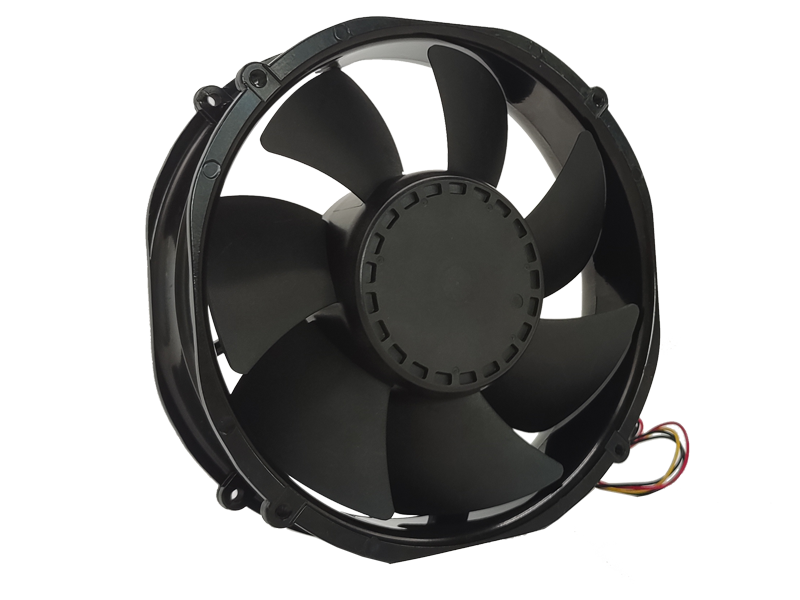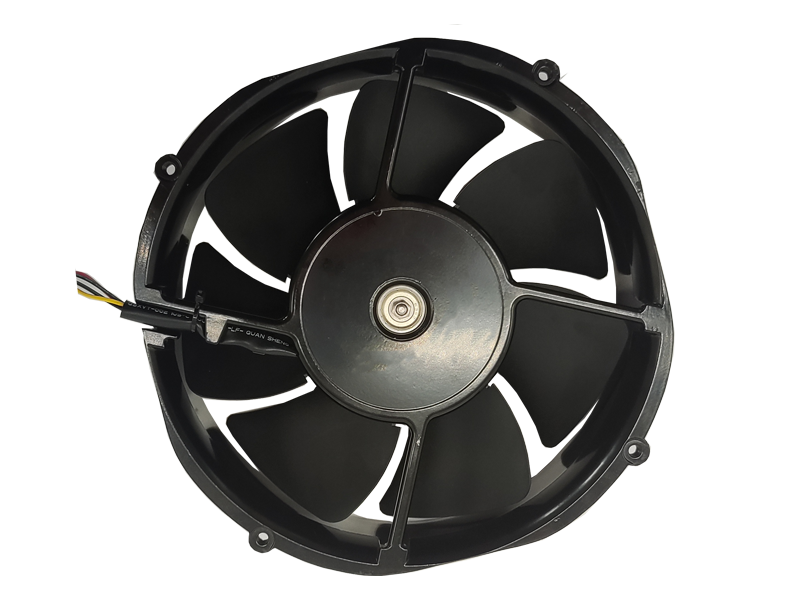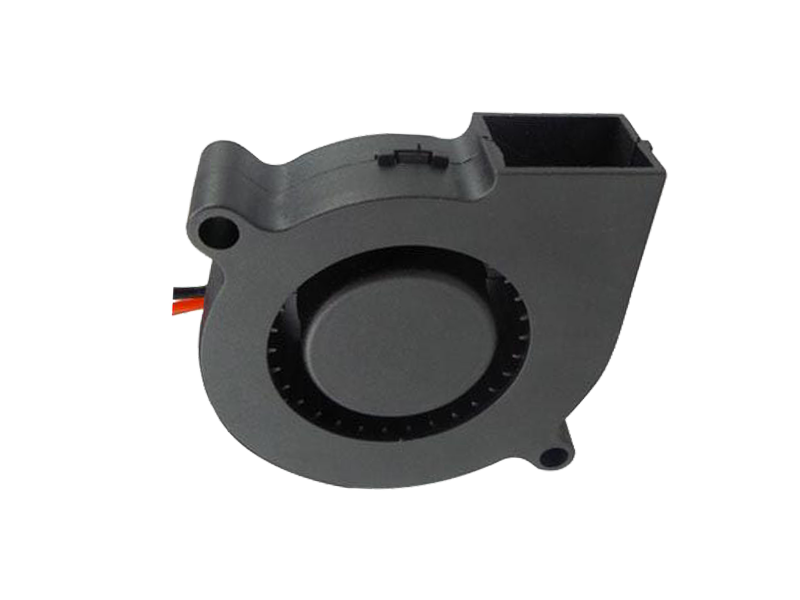In today's industrial landscape, the significance of industrial fans cannot be overstated. These powerful machines are not just a luxury; they are essential for maintaining comfort, improving productivity, and enhancing safety across a variety of sectors. Whether in manufacturing plants, warehouses, large commercial spaces, or even large-scale agricultural operations, industrial fans play a crucial role. This article explores the critical functions and benefits of industrial fans, providing an in-depth look at how they contribute to optimizing operations and maintaining a conducive working environment.
Understanding Industrial Fans: Design and Functionality
Industrial fans are designed to move large volumes of air across vast spaces. These fans come in various sizes and configurations, with each type serving a specific purpose depending on the nature of the space and the challenges it presents. Unlike residential fans that cater to smaller areas, industrial fans are built to cover wide areas and operate efficiently under demanding conditions.
The two primary categories of industrial fans are axial fans and centrifugal fans.
Axial Fans: These fans are commonly used when high airflow is needed. They move air along the axis of the fan, making them efficient for large open spaces like warehouses, factories, and sports arenas. Their design allows them to push air over long distances, making them ideal for cooling and ventilation.
Centrifugal Fans: These fans operate by pulling air into the fan through an intake and then pushing it out through a discharge. Centrifugal fans are known for their ability to produce higher pressures and are often used in applications like dust extraction systems, ventilation systems, and cooling systems in industrial processes.
Both types of industrial fans are powered by motors, with many models offering variable speed controls to adjust airflow to specific needs. The materials used for industrial fans, typically high-quality steel or composite materials, ensure durability, even in harsh environments such as factories or plants where temperatures, dust, and chemicals can take a toll on equipment.
Key Benefits of Industrial Fans
Improved Air Circulation and Ventilation
Industrial fans are essential for maintaining optimal air circulation in large spaces. Poor air circulation can lead to the buildup of harmful gases, smoke, and contaminants, creating unhealthy working conditions. By circulating air, industrial fans help in ventilating spaces, expelling stale air, and drawing in fresh air, improving air quality. This is particularly crucial in industries like food processing, pharmaceuticals, and manufacturing, where workers are exposed to various fumes and particulates.
Temperature Control
In large industrial settings, temperature regulation can be challenging. In areas like foundries, warehouses, or server rooms, heat build-up can become unbearable without a proper ventilation system. Industrial fans are designed to provide efficient temperature control by distributing cool air evenly and removing hot air from the space. This is particularly valuable in preventing overheating of machinery and ensuring a comfortable working environment, which directly contributes to worker productivity and safety.
Energy Efficiency
Modern industrial fans are designed with energy efficiency in mind. Unlike traditional cooling systems that require refrigeration or air conditioning, fans use less energy while still providing effective air circulation and cooling. This can lead to significant savings in energy costs over time. Furthermore, industrial fans can be equipped with energy-saving features such as variable speed drives, which allow businesses to adjust the airflow to suit the specific requirements of the environment, thereby reducing energy waste.
Health and Safety
Industrial fans also play an important role in maintaining a safe working environment. Many industrial settings deal with airborne particles, dust, fumes, or hazardous gases. Industrial fans can be used as part of a comprehensive ventilation system to remove these contaminants and provide workers with cleaner, safer air to breathe. Fans are also crucial in reducing humidity levels in certain environments, which can help prevent the growth of mold and mildew, further promoting worker health.
Cost-Effective Cooling Solutions
Cooling systems can be expensive, especially in large facilities where traditional air conditioning units might not be practical. Industrial fans offer a more cost-effective solution for cooling large spaces. They provide effective air movement without the high installation and maintenance costs associated with air conditioning systems. Additionally, fans can work in conjunction with air conditioning systems, enhancing their performance by evenly distributing cool air throughout a room.
Applications of Industrial Fans
Industrial fans have a wide range of applications across different industries, each with unique requirements. Let’s take a closer look at how industrial fans are used in various settings:
Manufacturing Plants
In manufacturing plants, industrial fans are used to cool machinery, control dust, and provide fresh air to workers. Certain industrial processes, such as metal forging or food production, generate significant heat. Fans help regulate the temperature of the workspace, ensuring machines run efficiently and workers are comfortable. Moreover, industrial fans help in removing airborne particles and fumes that could pose health risks.
Warehouses and Distribution Centers
In large warehouses and distribution centers, industrial fans provide the necessary airflow to keep spaces cool and well-ventilated. These spaces can often become hot and stuffy, particularly if there are high ceilings and limited ventilation. Industrial fans circulate the air effectively, ensuring that workers remain comfortable, which in turn boosts efficiency. They also help prevent mold and humidity from building up, especially in storage areas where products might be sensitive to moisture.
Agricultural Facilities
In agriculture, particularly in poultry and livestock facilities, ventilation is key to maintaining animal health. Industrial fans help regulate the temperature, humidity, and air quality in barns, stables, and greenhouses, ensuring optimal conditions for livestock and crops. Proper airflow is necessary to prevent diseases, reduce odor, and promote animal growth.
HVAC Systems
Industrial fans are also commonly integrated into HVAC (heating, ventilation, and air conditioning) systems. They help distribute conditioned air throughout a building, ensuring even temperature and humidity levels across the space. In large commercial buildings, such as office complexes or shopping malls, industrial fans are an integral part of the climate control systems.
Choosing the Right Industrial Fan

When selecting an industrial fan, several factors should be considered:
Size of the Space: The size of the area being ventilated is one of the most important considerations. Larger spaces require more powerful fans to ensure that air circulates effectively.
Type of Environment: The environment where the fan will be used (e.g., dusty, humid, or chemical-laden) will dictate the kind of fan and material needed. Fans for corrosive environments may need special coatings to withstand damage from chemicals.
Noise Levels: In some settings, noise can be a concern. While industrial fans are typically louder than their residential counterparts, certain models are designed with noise-reducing features to minimize disruption in work areas.
Energy Efficiency: As businesses increasingly look for ways to reduce their carbon footprint, energy-efficient fans have become a priority. Fans with energy-saving features, such as variable speed settings, can help reduce electricity consumption.
Conclusion
Industrial fans are an indispensable part of the modern industrial landscape, providing essential functions such as air circulation, temperature control, and improved air quality. Whether it is a warehouse, a manufacturing plant, or an agricultural facility, industrial fans help maintain optimal working conditions that promote worker productivity, ensure safety, and support energy efficiency. By understanding the different types of industrial fans and their applications, businesses can make informed decisions about the equipment they need to ensure a smooth, efficient, and safe operation.
As industries continue to evolve, the role of industrial fans will undoubtedly remain a cornerstone in creating environments where both people and machines can thrive.
Recommended Products

The main purpose:Car charging station

The main purpose:Car charging station

The main purpose:Electronic refrigerators, water dispensers, direct drinking machines, inverter power supplies
Address:No. 4137, Longgang Avenue (Henggang Section), Henggang Community, Henggang Street, Longgang District, Shenzhen
hotline:13530005572(Chen)15112579390(Li)


Welcome all friends to come for consultation and negotiation.
Copyright 2024 @ Shenzhen Youneng Xinyuan Electronics Co., Ltd.,(industrial fans,industrial blowers,axial fans,cooling fans manufacturer,centrifugal fans,ac cooling fans,dc cooling fans)